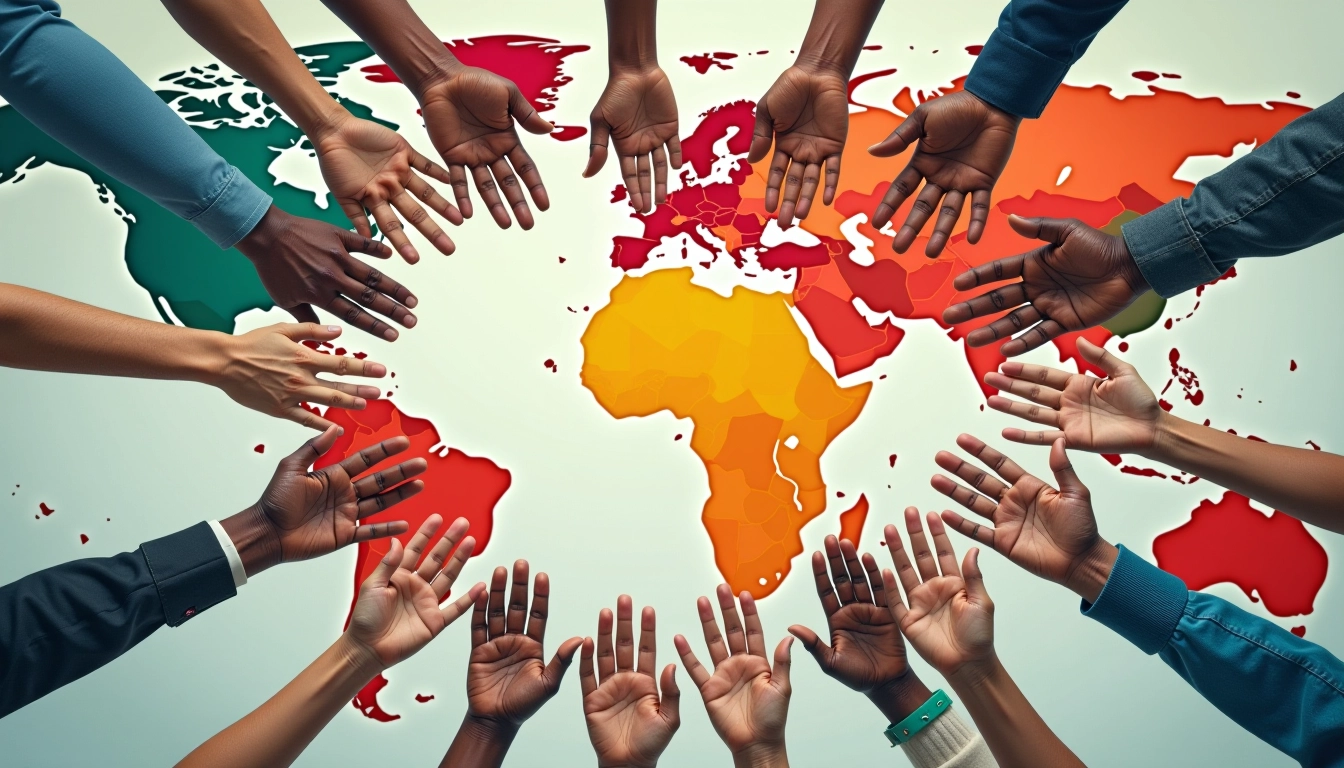Let’s explore the significance of the International Day for Tolerance, observed annually on November 16th. In a world often divided by differences, this day serves as a powerful reminder of the importance of unity, understanding, and acceptance. As we approach November 16, 2024, it’s crucial to reflect on how tolerance can shape a more harmonious global society. Discover the impact of this observance and how it continues to inspire change across cultures and borders.
The Origins and Evolution of the International Day for Tolerance
The International Day for Tolerance has its roots in the United Nations’ commitment to fostering peace and understanding. Established by UNESCO in 1995, this observance day was officially recognized by the UN General Assembly in 1996. The date, November 16, commemorates the adoption of UNESCO’s Declaration of Principles on Tolerance.
As UNESCO’s Director-General once stated, “Tolerance is respect, acceptance and appreciation of the rich diversity of our world’s cultures, our forms of expression and ways of being human.” This powerful sentiment encapsulates the essence of the day and its ongoing relevance in our increasingly interconnected world.
The Importance of Tolerance in Today’s Global Landscape
In an era marked by rapid globalization and cultural exchange, tolerance has never been more critical. It serves as a cornerstone for peaceful coexistence, much like how World Civil Defence Day promotes safety and cooperation. Tolerance extends beyond mere acceptance; it embraces the celebration of our differences and the recognition of our shared humanity.
Tolerance is the bridge that connects diverse communities, fostering understanding and empathy. It’s the antidote to prejudice, discrimination, and conflict, paving the way for a more inclusive and harmonious society.
Challenges to Tolerance in the Modern World
Despite progress, intolerance continues to manifest in various forms globally. From racial discrimination to religious persecution, the challenges are multifaceted and complex. The rise of social media has both connected us and, paradoxically, sometimes deepened divisions, creating echo chambers that can reinforce biases.
As one social psychologist noted, “Intolerance often stems from fear of the unknown. Education and exposure to diverse perspectives are key to overcoming this fear.” This insight underscores the importance of initiatives that promote cross-cultural understanding and dialogue.
Celebrating Diversity: The Heart of Tolerance
Embracing diversity is at the core of tolerance. It’s about recognizing that our differences enrich our collective human experience. Just as World Compliments Day celebrates positivity, the International Day for Tolerance celebrates the beauty of our diverse world.
Consider diversity as a vibrant tapestry, where each thread, unique in color and texture, contributes to the overall beauty of the fabric. Tolerance allows us to appreciate each thread’s importance, understanding that the tapestry would be incomplete without any single one.
Education: The Foundation of Tolerance
Education plays a pivotal role in fostering tolerance. By exposing individuals to different cultures, beliefs, and perspectives from an early age, we can cultivate a generation that naturally embraces diversity. Schools and universities serve as crucial platforms for promoting tolerance and combating prejudice.
Key elements of tolerance education include:
- Multicultural curriculum
- Interactive cultural exchange programs
- Critical thinking skills to challenge stereotypes
- Empathy-building exercises
The Role of Media in Promoting Tolerance
Media, both traditional and social, wields significant influence in shaping public opinion and fostering tolerance. Responsible journalism and inclusive representation in media can help break down stereotypes and promote understanding. Social media platforms, when used positively, can amplify diverse voices and facilitate cross-cultural dialogue.
As a media ethicist once remarked, “The media has the power to be a unifying force, bridging gaps between communities and fostering a culture of tolerance. It’s a responsibility that should not be taken lightly.”
Global Initiatives and Success Stories
Around the world, numerous initiatives are making strides in promoting tolerance. The Peace Summit in Bangladesh, for instance, addresses challenges related to peace, tolerance, and online safety. In Norway, the Universal Tolerance Cartoon Festival uses art to convey messages of acceptance and understanding.
These initiatives, much like how National Dentists Day recognizes professionals who care for our health, acknowledge those who work tirelessly to build a more tolerant world.
The Impact of Tolerance on Mental Health and Social Cohesion
Tolerance has far-reaching effects on both individual and societal well-being. In tolerant environments, individuals experience reduced stress and anxiety, leading to better mental health outcomes. On a broader scale, tolerant societies enjoy greater social cohesion, economic stability, and cultural richness.
Imagine tolerance as a healing balm, soothing the wounds of discrimination and fostering a sense of belonging for all members of society.
Practical Ways to Cultivate Tolerance in Daily Life
Cultivating tolerance begins with individual actions. Here are some practical steps everyone can take:
- Actively seek out diverse perspectives and experiences
- Practice active listening and empathy
- Challenge your own biases and assumptions
- Speak out against intolerance when you encounter it
The Future of Tolerance: Challenges and Opportunities
As we look to the future, the landscape of tolerance continues to evolve. Emerging technologies, changing demographics, and global challenges like climate change will shape how we interact and understand one another. The opportunity lies in harnessing these changes to create more inclusive and tolerant societies.
Just as National Oreo Day celebrates a timeless treat, we must work to ensure that tolerance becomes a timeless value in our global society.
Conclusion: Embracing Tolerance for a Better World
The International Day for Tolerance serves as a powerful reminder of our shared responsibility to create a more understanding and inclusive world. It challenges us to look beyond our differences and recognize our common humanity. As we approach November 16, 2024, let’s commit to embodying the principles of tolerance in our daily lives.
Remember, tolerance is not passive acceptance but active engagement with diversity. It’s a conscious choice we make every day to build bridges instead of walls. By embracing tolerance, we contribute to a world where diversity is celebrated, understanding flourishes, and peace prevails. Let’s make every day a day of tolerance, creating a brighter future for generations to come.
